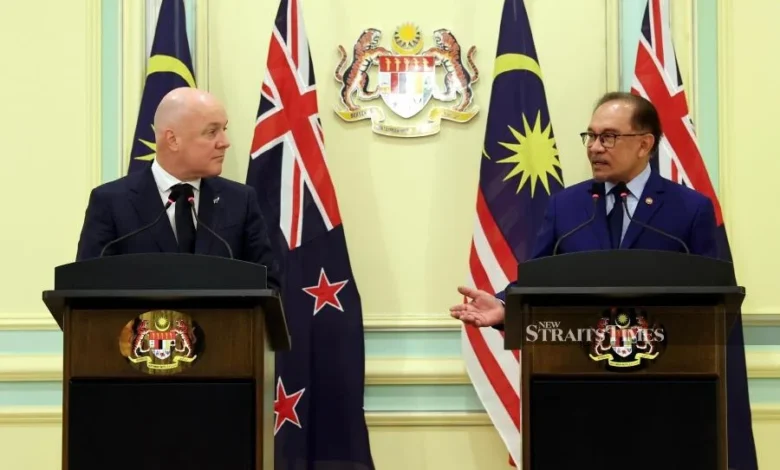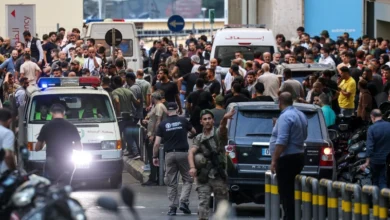Malaysia and New Zealand Prime Ministers call for an immediate ceasefire in Gaza.

Both Malaysian and New Zealand Prime Ministers made a severe call for an immediate ceasefire in Gaza, with an emphasis on an urgent solution to the humanitarian crisis that has continuously deteriorated in the region. The appeal for a truce was issued amid the ongoing violence that has caused significant civilian casualties and widespread damage in Gaza, bringing to the fore the dire need for international intervention.
Malaysian Prime Minister Anwar Ibrahim and New Zealand Prime Minister Chris Hipkins held a press conference after meeting at the United Nations headquarters. Both leaders voiced deep concern about the impact the ongoing conflict is having on civilians, with women and children being the most suffering from violence. The tone of the joint statement showed growing international frustration because of a failure of progress toward peace in the region and the mounting humanitarian needs for the affected population.
Prime Minister Anwar Ibrahim also underlined Malaysia’s long-standing position on the Palestinian issue by calling for an immediate ceasefire to prevent further loss of life and alleviate suffering. He reiterated that the international community should take solid initiatives to bring the two sides onto the negotiating table, working toward a lasting solution. “The people of Gaza are enduring unimaginable hardships. We must use our collective influence to end this violence and work towards lasting peace,” said Anwar.
Meanwhile, Prime Minister Chris Hipkins said that New Zealand strongly opposes the perpetuation of violence, and they are committed to supporting those efforts that contribute toward peace and stability in the region. “What is taking place in Gaza is no more than a humanitarian tragedy that calls for intervention as soon as possible. We, as an international community, should not just be ‘spectators of some innocent people dying in the area. Therefore, we are expected to work toward calling for an end to hostilities and support moves that would lead to a lasting and fair settlement,” Hipkins said.
The call for a ceasefire comes after a sharp escalation in violence that has led to an unprecedented number of casualties and infrastructure damage in the Gaza Strip. Furthermore, the United Nations said the conflict has very critically impacted access to essential services such as healthcare, clean water, and food supplies, further exacerbating civilian suffering.
So far, both leaders’ statements have been well received by various international actors, who have been working for a peaceful solution to the crisis. Similarly, the UN Secretary-General has expressed his support for the call for a ceasefire. At the same time, he works with the member states to address the immediate humanitarian needs and facilitate dialogue between the parties in conflict.
Apart from the call for an immediate ceasefire, Malaysia and New Zealand have also sought the international community’s commitment to long-term engagement in initiatives that address the root causes of this conflict in a manner conducive to lasting peace. This includes support for diplomatic efforts, humanitarian assistance, and development projects aimed at rebuilding and stabilizing the region.
That call from Malaysia and New Zealand in unison indicates the relevance of multilateral cooperation in solving these global wars. It shows these small nation-states’ capability to actively influence international policy considerations. As the week drew to a close, the situation remained critical in Gaza, and the global community was facing growing pressure to respond adequately and support initiatives that would bring an end to violence and open up a path toward peaceful resolution.
Malaysia and New Zealand are calling for an immediate ceasefire in Gaza. This is the most serious diplomatic effort to stop the continuing crisis. The two leaders called on the international community to unite and act upon one of the most urgent humanitarian crises of this time.




